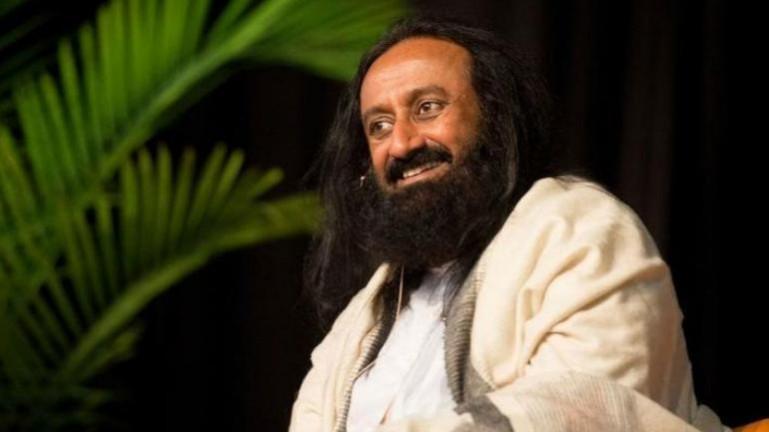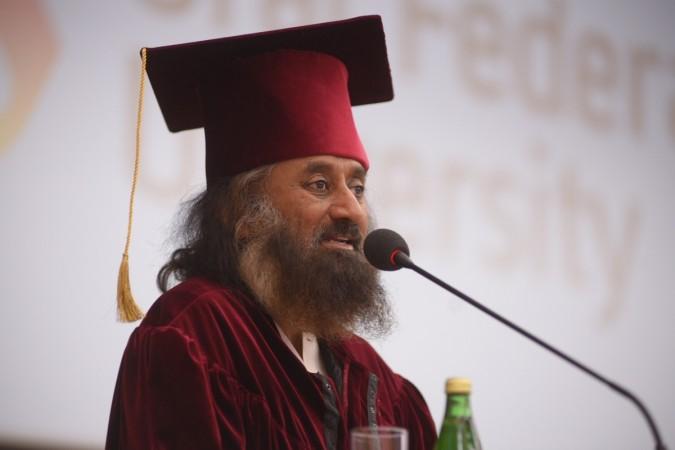
Sri Sri Ravi Shankar, spiritual guru and Art of Living founder, talks about how educating a child should be holistic and not just a process of stuffing their heads with information. According to the spiritual guru, "If education does not create individuals whose personalities have fully blossomed, peaceful individuals with a vision for the world, then education has not served its purpose."
Just coming to class and learning a few lessons is not really the education that a child needs. We have to see to the total development of the child's body and the mind because they are linked.
Guru-Shishya tradition in India

This is a very strange and unique idea about the teacher-student or Guru-Shishya tradition in India that formed the basis of our ancient education system. A good teacher always wishes the student to win. And a good student wishes for the victory of the teacher who represents the Big Mind. The Guru does not just give information but imparts holistic knowledge to help a student live to one's highest potential.
The student on his/her part knows that if his/her small mind wins, it is going to be miserable but if the teacher wins, it is the victory of the big mind, victory of knowledge which will only bring good and joy for everyone. So the student wishes for the victory of the big mind or Guru. It is healthy because if the student feels that he knows more than the teacher, that would mean the learning has stopped and that his arrogance has killed the wisdom.
Another quality that a good teacher needs to have is lots of patience. A student may be a slow learner but the teacher's patience can turn the student around. Parents may have to deal with only one or two children but teachers have many more in their classrooms. The situation is more testing and stressful. To handle it, you need to be centred.
You have to set an example because children watch you carefully. They learn only half of the values from their parents and the rest are from their teachers. They observe everything you say and do. They observe when you are calm and composed, and when you are tense and angry.
Teachers should understand where the student is coming from
![About 8 lakh Central college teachers and staff members to get a salary hike of up to 28% [Representational Image] Teacher](https://data1.ibtimes.co.in/en/full/654667/teacher.jpg?h=450&l=50&t=40)
Teachers should understand where the student is coming from and how to guide them step by step. For example, Lord Krishna was such a good teacher. He took Arjuna step by step to the final destination. Arjuna was initially very confused. When a student is growing, he goes through a lot of confusion because his concepts are breaking apart.
You first learn that the sun rises from the east. Then later, you are taught about the planets and their movements. So your concepts break. A good teacher knows this and guides the student through this confusion. And sometimes create confusion too when it is needed.
Be loving and strict at the same time. You find teachers who are very loving and teachers who are only strict. It is rather a delicate combination - firmness coupled with love. Some children are rebellious. They need more physical contact, more encouragement and more pats on the back. They need to be made to feel that they are loved, that you really care for them and that they belong.
On the other hand, with children who are very timid and shy, you can use a little firmness to help them stand up and speak out. You can be a little tough with them and, at the same time, you can be loving. Often the reverse is done.
Teachers are strict with rebellious children and liberal with shy ones. Then that behaviour pattern stays. You need to be tough and sweet both, otherwise you won't be able to guide the student to where you want to take them.

















